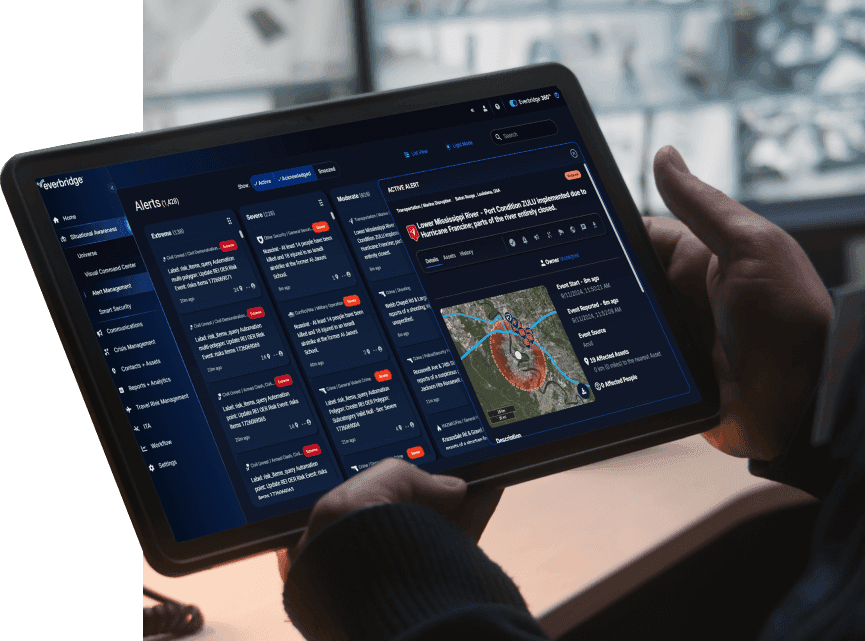HR has always been about people. But it’s also about protecting them.
Workplace threats are real. Violence, severe weather, or a cyber issue that cuts people off from critical systems – they’re not edge cases anymore. HR teams are on the front lines, helping people stay informed, safe, and supported when something goes wrong.
This isn’t just about having the right policies. It’s about building a culture that’s prepared. It’s about strong coordination across teams and clear communication at every level.
At Everbridge, we talk a lot about resilience being a shared responsibility. It doesn’t sit with one department. HR plays a big part, because how you support your employees in tough moments reflects who you are as a company.
And that role is growing.
Today’s workforce is global and digital-first. People aren’t just sitting in one office. They’re spread across regions, time zones, and risk profiles. That creates complexity, but it also creates opportunity, if you’re ready for it.
We call this High Velocity Resilience
It’s not a tool or a checkbox. It’s a mindset that brings speed and clarity to complex situations. And it connects people, technology, and process so that response feels seamless.
We use a simple framework: Know, Respond, Improve.
- Know what’s happening and how it affects your people
- Respond with clarity and coordination
- Improve every time
That’s how you build confidence. That’s how you earn trust.
First: Know
You can’t respond to what you don’t see. HR needs visibility into where employees are, what risks might affect them, and how people are feeling in general. Are they confident in the company’s response plans? Do they know what to do in a crisis?
This means HR has to be looped into security, operations, and leadership. You can’t build strong support for your people if you’re kept in the dark. Sitting in on continuity planning and having a voice in how the organization prepares for disruption should be standard.
Second: Respond
When something happens, people turn to HR. It might be for guidance, a resource, or simply reassurance. That’s why HR needs to be part of any coordinated response.
Are your messages aligned with what security and leadership are saying? Can you reach employees across time zones? Do you have a process to check on impacted staff and escalate if someone doesn’t respond?
Fast, clear communication can be the difference between confusion and calm. At Everbridge, we believe every message should bring clarity. And it needs to reach the right people at the right time.
Third: Improve
After any disruption, there’s always something to learn. HR should lead that reflection with questions like: Did our people feel supported? What gaps did we uncover? Where can we simplify or speed up next time?
These insights belong in your training materials, playbooks, and onboarding. And they should feed back into the way your organization communicates, collaborates, and responds.
If your teams are still working in silos, that’s a problem. Risk doesn’t stay neatly in one lane, and neither should your response. HR, security, IT, operations: everyone needs to be on the same page.
The line between workplace and outside world is blurry. A local protest, a regional outage, or a weather alert can impact dozens or hundreds of employees within minutes. HR needs to be ready to lead in those moments, not just manage the fallout afterward.
This is a leadership opportunity. It’s about showing up for your people with consistency and care. It’s about building systems that support them no matter what’s happening around them.
Culture is resilience. A strong culture communicates clearly, moves quickly, and keeps people at the center. It doesn’t just survive hard moments. It learns and improves from them.
That’s the kind of culture we’re building at Everbridge. And it’s what we help other organizations build too.
Because when people feel safe, informed, and supported, they don’t just get through the crisis. They come out stronger.


